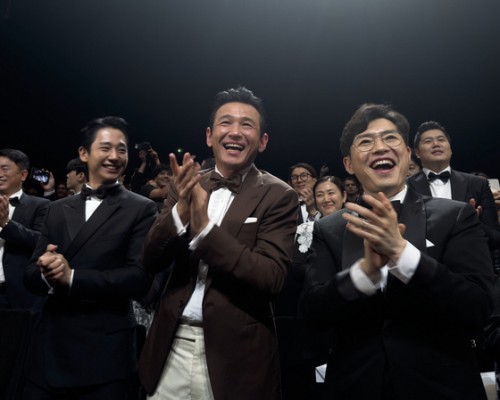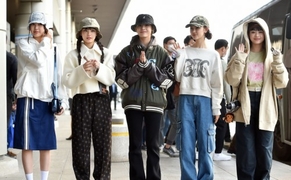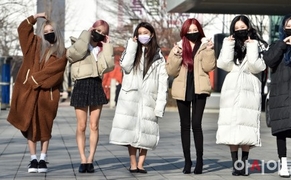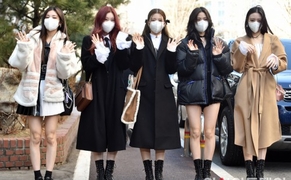 |
| Director Ryoo Seung-wan (third from right) and actor Hwang Jung-min (seventh from right) attend a screening and greet the audience after the official showing of Veteran 2 in the Midnight Screening section of the 77th Cannes Film Festival last year. / Courtesy of CJ ENM |
Film, more than most art forms, runs on capital. Unlike theater, painting, or music, filmmaking requires massive financial investment, making it difficult to achieve artistic success without a solid industrial base. While opinions may differ, one reason Hollywood can produce not only blockbusters but also a wealth of quality independent and arthouse films is precisely because of this economic foundation.
In this sense, producing indie and art films is akin to launching a startup — high risk, but with a long-term vision for value. For such “startups” to thrive, the revenue from commercial cinema must be reinvested into cultivating diverse voices and daring projects. Hollywood’s ecosystem allows for this flow of capital and creativity, a system not yet fully realized in Korea.
As the 78th Cannes Film Festival approaches next month, the likelihood that no Korean feature-length film will be screened — not even in side sections — has sparked concern. Many explanations have been offered, but the underlying issue, shared by industry insiders, is the growing fragility of Korea’s film industry itself.
With a prolonged downturn now in its third or fourth year, driven by declining theater attendance and the rise of streaming platforms, the volume of domestic film production has shrunk. This has made it nearly impossible to identify and nurture the next generation of filmmakers who could succeed Cannes mainstays like Park Chan-wook, Bong Joon-ho, Hong Sang-soo, or Lee Chang-dong. In that context, the absence of Korean films at Cannes this year is less a surprise and more an inevitable result.
Historically, the Korean film industry’s rise at Cannes closely coincided with its own growth at home. In 1998, Korea’s first multiplex cinema, CGV, opened, and a year later Kang Je-gyu’s Shiri drew a then-record 6.2 million viewers, kicking off the era of the Korean blockbuster. In 2000, Im Kwon-taek’s Chunhyang became the first Korean feature to compete at Cannes. This momentum continued with Silmido (2003) and Tae Guk Gi (2004) each surpassing 10 million admissions, and Park Chan-wook’s Oldboy taking the Grand Prix at Cannes that same year.
Some might question whether Cannes merits such alarm, but the festival’s stature in global cinema makes the concern valid. As Bong Joon-ho once said, Cannes is virtually the only film festival — aside from the Oscars, which he labeled a local U.S. awards show — that consistently spotlights films from a wide range of countries, both in quantity and quality. While Venice and Berlin are also part of the "big three" festivals, Cannes has long outpaced them in scale and influence.
The absence of Korean films at this year’s Cannes is not simply a missed opportunity — it’s a red flag for the health of Korea’s film ecosystem. Without industrial reinvestment, the very foundation that once launched Korean cinema onto the global stage may begin to crumble.
Most Read
-
1
-
2
-
3
-
4
-
5
-
6
-
7





















